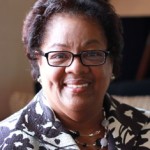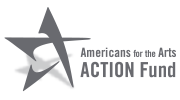
Margie Johnson Reese
I am a registered card carrying bureaucrat. I don’t do passion. The job isn’t what you’re excited about; it’s what you accomplish. My staff might disagree with this self-assessment especially after summer 2014.
This past summer, in less time than any organization should be given; Big Thought implemented Dallas City of Learning, an expansion on a connected learning initiative first created in Chicago. To put it simply, the Cities of Learning initiative connects students to learning opportunities based on their burgeoning interests and the peer communities those interests created, with the goal of tying those creative experiences to academic outcomes. Student achievements are codified and recognized through digital badges that contain within their code the granular information about each accomplishment.
Dallas and Chicago make for an interesting comparison. The two cities have similar racial demographics and poverty rates, but a significantly smaller percentage of “Dallasites” have high school degrees. However, Chicago has more than twice Dallas’ population in a cityscape 66% the size of Dallas. In other words, our citizens are spread out. Even then, 36% of our citizens don’t have access to internet either at home or at work, which creates a large access gap for this online interface.
So we needed partners – large and small – and we needed our city, which required us to generate government buy-in. The talents of any city department lie in infrastructure, not creative opportunities designed to engage youth who might not be interested in learning. The typically under-represented, non-dominant population of young people was who I most wanted to reach. We didn’t want to build a digital system that impacted only those students whose lives are rife with opportunity.
We created a series of free social learning events we called “Turn Ups” in neighborhoods most likely to be otherwise left out of the Dallas City of Learning. Early in the spring, we met with city directors to explain the initiative and ask for their help. You can imagine their expressions. The City Manager essentially said, “OK, so, what is it you want from us?”
We wanted them to think differently. We wanted them to interact with Dallas youth to show what happens in the city, what possibilities there are, and how a single experience or a single question can provide a new life trajectory for a child. We wanted them to help us show that Dallas has opportunities, that even though learning based on personal interest can lead you someplace unexpected, that particular someplace can also be somewhere in our home city.
Within days my inbox was flooded with emails saying something along the lines of, “My director said I need to contact you and ask how we can help.” Love Field, the city owned regional airport, hosted a Turn Up where its employees and contractors volunteered to open up the inner workings of local aviation. Many of the students and their families that attended the airport Turn Up had never flown before, much less seen an airport fire truck, a police and search and rescue dog, or a hangar where a plane’s engine was being inspected. Dallas Fire and Rescue even sent a rapping fire-fighter duo to several of the Turn Ups.
The library system joined the City of Learning through countless ways, but perhaps my favorite was a Turn Up one branch hosted based on music experimentation, and no one told the children to hush. Even our municipal courts—including judges, bailiffs, lawyers, and administrative staff—held a mock trial complete with reflective art activities. The city’s involvement encouraged other organizations like Children’s Medical Center, parks and rec, and city council members to become more closely engaged.
But beyond that, we created a team of youth we called our “Turn Up Crew” to assist the city department efforts by organizing participants and interacting with student attendees. They planned and led mini-Turn Ups ahead of time to generate interest. And they worked alongside those departments to maximize student impact.
Mark Deubner, the city’s Director of Aviation, explained that all the city organizations needed to do was “open up and share” their expertise. It’s true. And what’s more, the adults enjoyed it and are already thinking about improvements for next summer.
This school year we’re partnering with another city department, Trinity Watershed Management—who sponsored the very first Turn Up, before any of us could clearly state what to expect—and an online learning company to take youth on excursions into natural spaces around their schools, pairing the experience of nature with the study of science. It’s another public/private partnership that will immerse students in local experiences to make learning real and point out otherwise invisible paths.
Our city employees are comfortable with spreadsheets, action items and timed agendas. But they also possess a wealth of information that can be shared in exciting and interactive ways. All they need is a partner to help them isolate what a child might find interesting, even life changing. A partner to help them to be brave. And, maybe, a little bit of passion.






